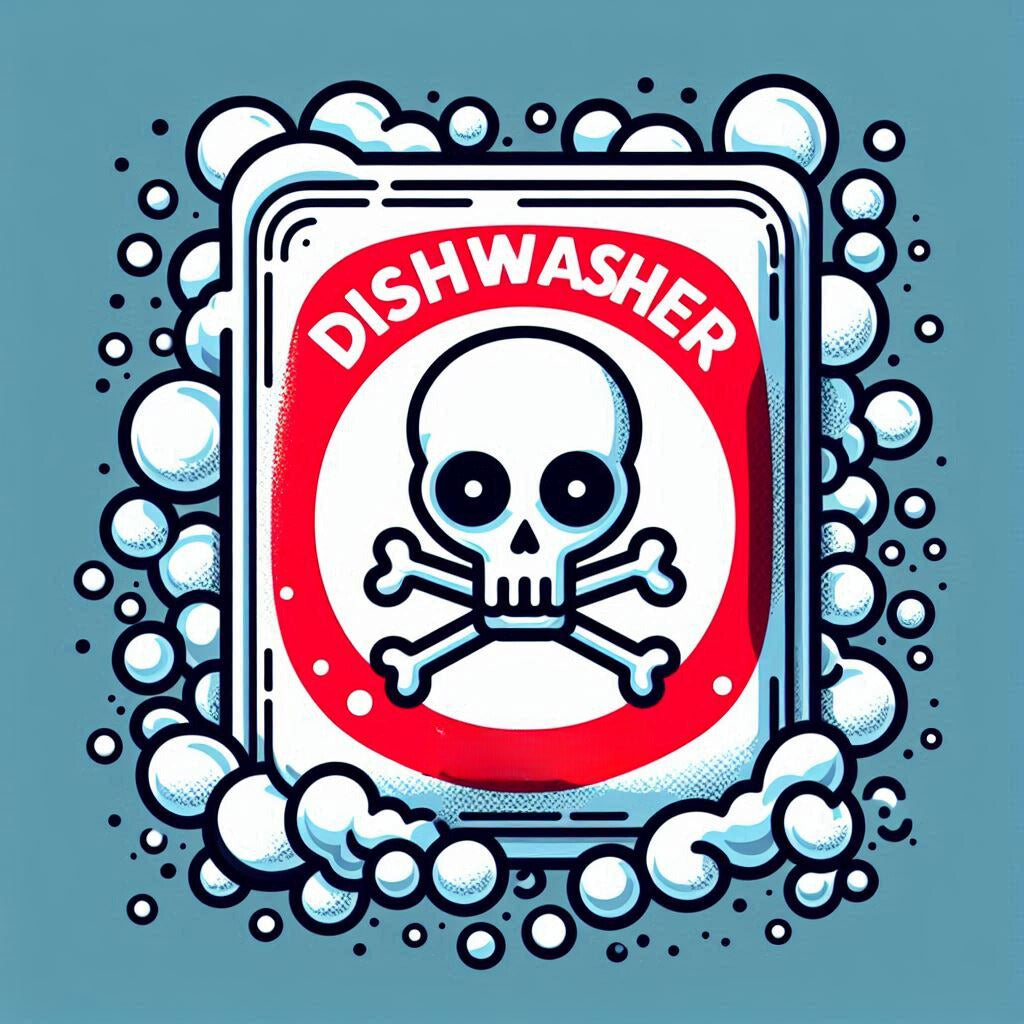Toxic chemicals are all around us.
There's no doubt about that.
We just need to turn any product around and check it's ingredients, from our soaps, shampoo's, conditioners and sunscreens.
A lot of these chemicals are under heavy scrutiny for the researched negative effects on our health.
And they invade every aspect of our day to day lives.
To try and stay healthy, many of us try to clean up our diet, exercise to keep fit, and reduce stress.
But even if you clean up your diet, how about what you eat and drink out of - like your cups and plates?
Dishwasher tablets are yet another source of chemicals like sodium lauryl sulfate (SLS), phosphates and EDTA that we REALLY DON'T NEED in our daily routine.
Regular dishwasher detergents can leave chemical residues on your dishes. These residues might not be completely rinsed off during the washing cycle and can end up being ingested with your food.
But how many of us are really adding an extra rinse cycle?
Many dishwasher detergents contain harsh chemicals such as phosphates, chlorine, artificial fragrances, and surfactants. These ingredients can have harmful effects when they come into contact with food.
Certain chemicals found in dishwasher detergents, such as chlorine and phosphates, can be toxic if ingested in significant amounts. Even small amounts, over time, can accumulate in the body and potentially cause health issues.
Handling dishes that have been washed with regular detergents can cause skin irritation for sensitive individuals. Chemicals like sulfates and artificial fragrances can lead to dermatitis or allergic reactions.
Some ingredients in dishwasher detergents, such as phthalates and certain surfactants, are known to be endocrine disruptors. These chemicals can interfere with hormone function, potentially leading to reproductive issues and other health problems.
Inhaling the fumes from dishwasher detergents can also be harmful, especially in poorly ventilated areas.
Volatile organic compounds (VOCs) released during the wash cycle can exacerbate asthma and other respiratory conditions. While not a direct health issue, the environmental impact of these chemicals can circle back to affect human health.
Pollutants from detergents can contaminate water sources, harm aquatic life, and disrupt ecosystems, ultimately affecting the water and food supply.
So what can you do to reduce the harms from toxic dishwasher detergents?
1. Use Natural Alternatives: Using natural or eco-friendly dishwasher detergents can mitigate these risks. Opt for detergents labeled as natural, biodegradable, or free from phosphates and chlorine.
2. Proper Rinsing: Ensuring your dishwasher has a thorough rinse cycle can help reduce residue left on dishes. However, this might not eliminate all chemicals, especially those that are more stubborn.
3. Run Extra Rinse Cycles: An extra rinse can help remove any lingering detergent residue.
4. Ventilation: Ensure good ventilation in your kitchen when the dishwasher is running to reduce inhalation of fumes.
5. Regularly clean and maintain your dishwasher to ensure it operates efficiently, which can help reduce the amount of detergent needed and improve the rinse quality.
Conclusion:
Regular dishwasher detergents can pose various health risks due to the presence of harsh chemicals. Opting for natural alternatives and taking steps to minimize residue can help protect your health and the environment.


